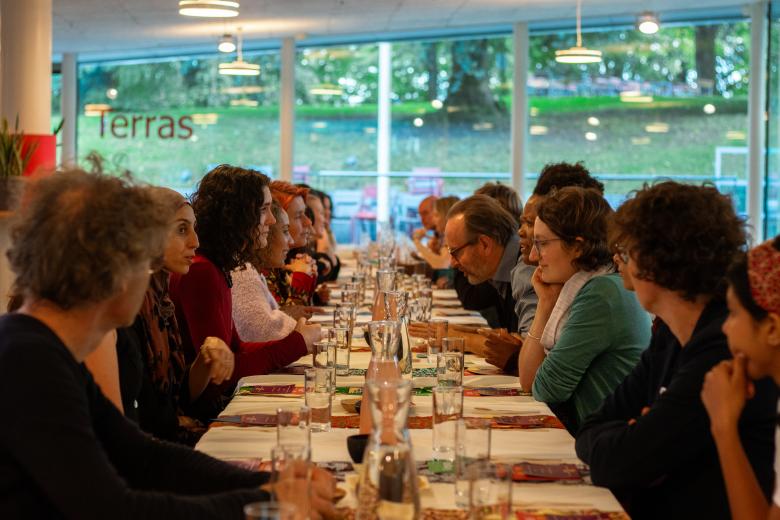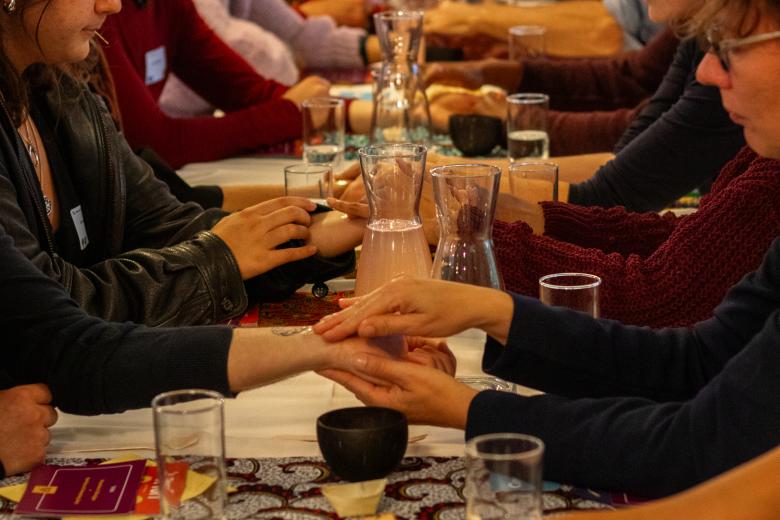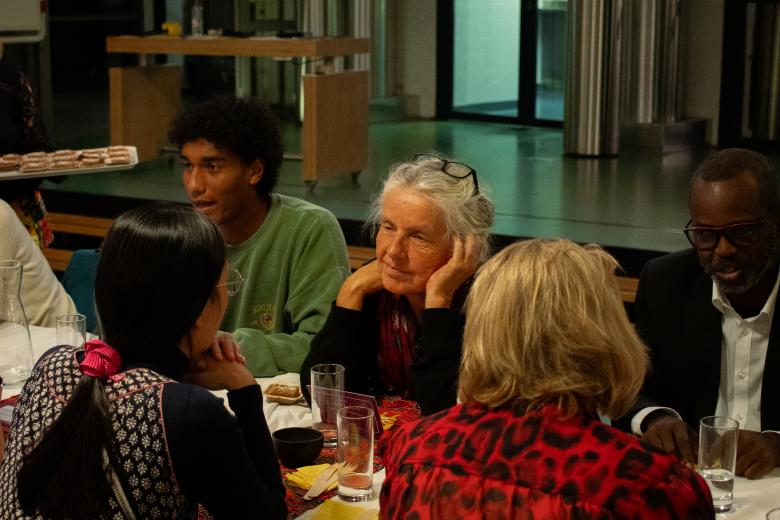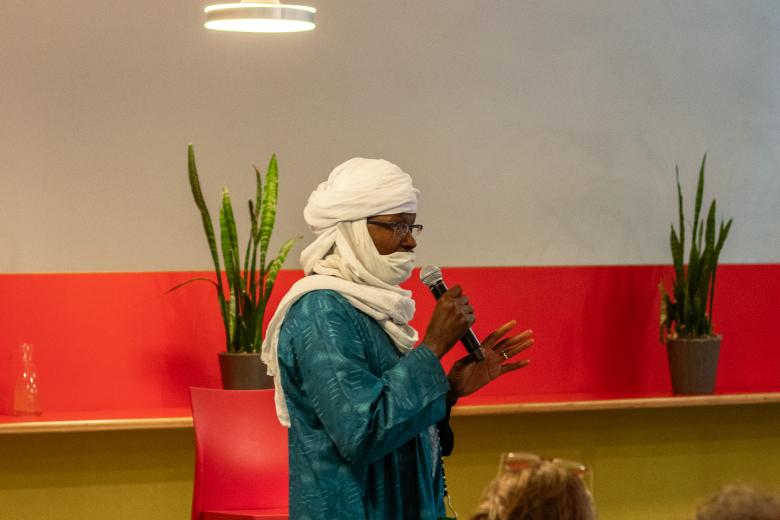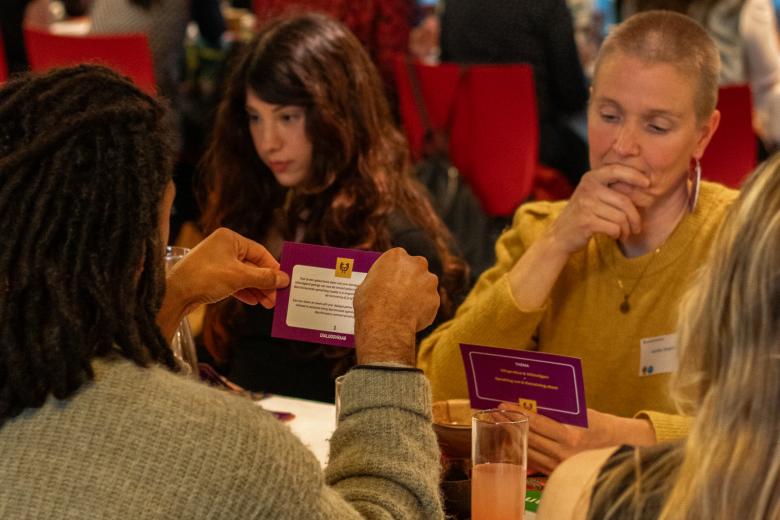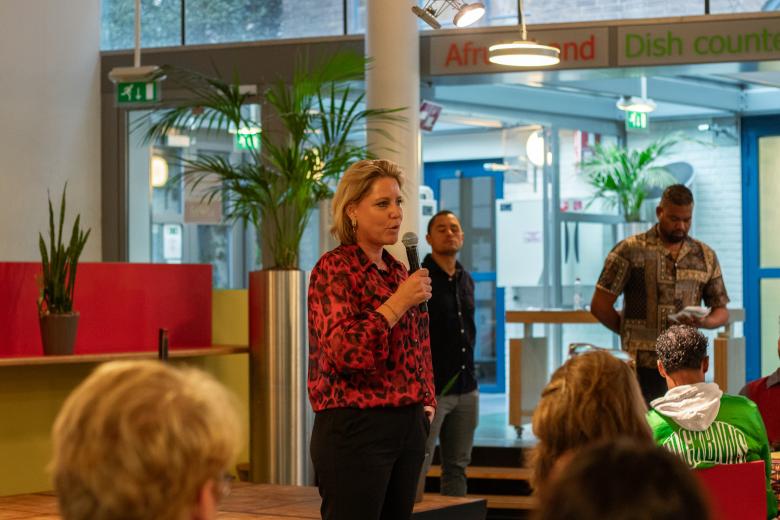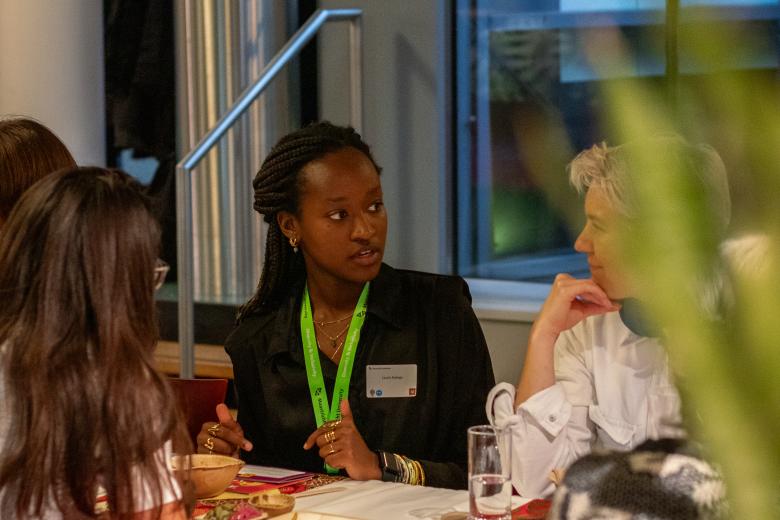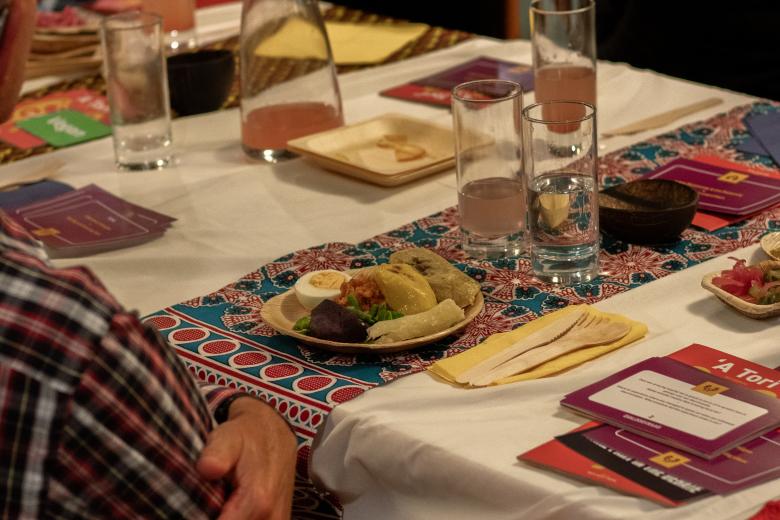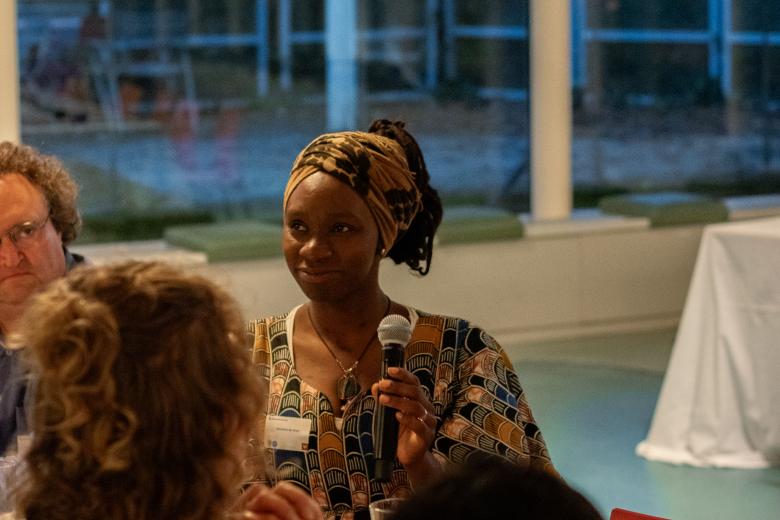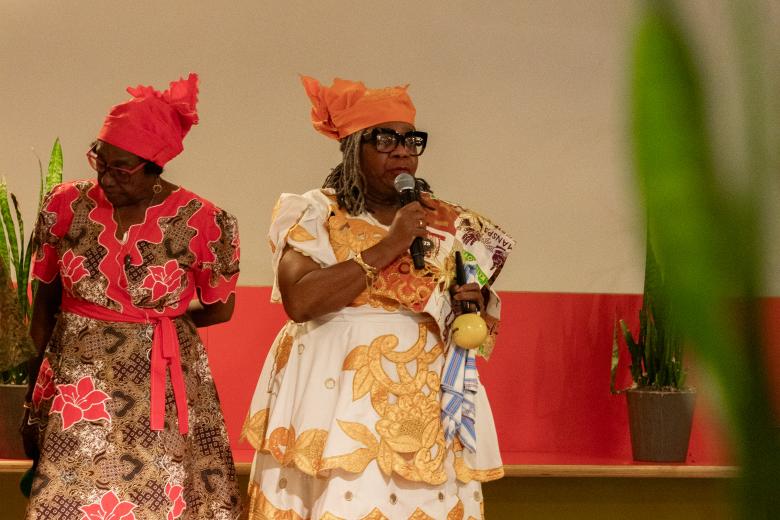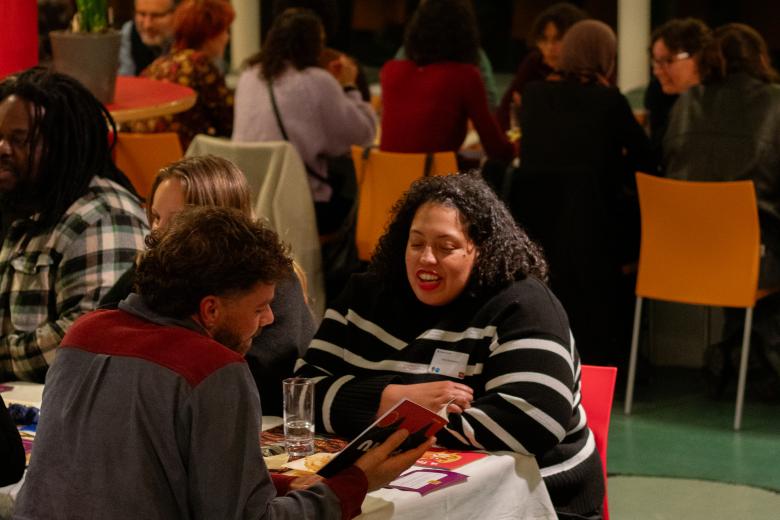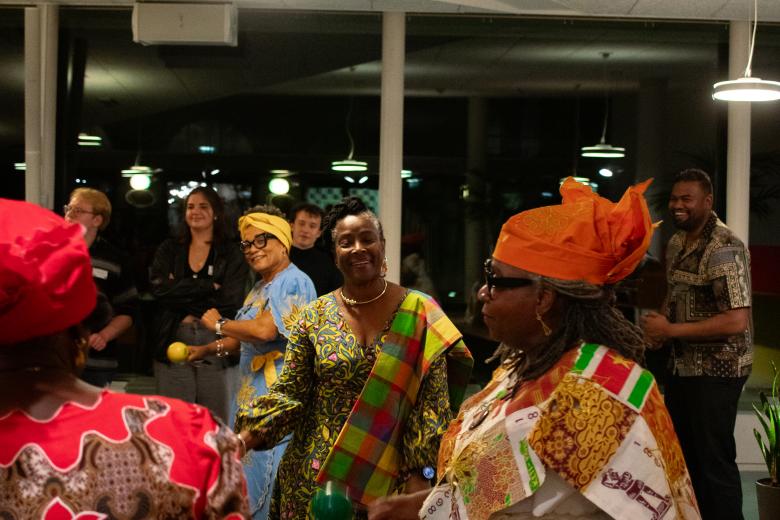Reflections on the Keti Koti Dialogue Table at UM
The Keti Koti Dialogue Table on 1 October was a big success! The Dialogue Table, smoothly navigated by discussion guides Durwin Lynch and Elias Simonse, provided a safe space for roughly 80 participants of diverse backgrounds to share personal experiences with racism, discrimination and exclusion. Afro-Surinamese food, music and ceremonies elevated the evening in honour of the ancestors lost by and liberated from the Dutch slavery. As one participant reflected: "I didn’t really know what to expect but being here with people who genuinely want to listen is a healing experience for me."
Speaking Out & Remaining Silent
The dialogue table brought people with diverse backgrounds together and in conversation: acquaintances and strangers, people of different generations and cultures from different communities. Black people, white people and People of Colour (with non-white migration background) engaged in conversation and shared their personal experiences, memories and feelings in relation to racism and discrimination.
Although the history of slavery and its aftermath were its occasion, the aim of the Keti Koti Dialogue Table was explicitly not to have a conversation about historical and political subjects. As such topics often give rise to heated and polarising debates, this structured dialogue facilitated an exchange of different personal experiences and insights. One of the dialogue questions, for example, asked: Share an experience where you managed to speak out when you witnessed discrimination. What emotions did this experience evoke in you?
The Programme
Through customs from the Afro-Surinames culture, the ancestors lost by and liberated from the Dutch slavery were honoured. The evening included ceremonial traditions and songs sung by the incredible Fri Yeye choir. Over delicious Surinamese meals, participants were invited to reflect on what racism and discrimination means to them personally and listen to the stories of people with different experiences. The conversations were structured according to a specially developed method that alternated rounds of speaking, listening, and reflection. Each story told opened a path to understanding one another, acknowledging the diversity in shared experiences and embracing new perspectives. As one participant shared: "It was a moment of intense communion and bonding across cultures."
A Safe Space
The setup created a safe space for participants to share their personal experiences. One person reflected "it was extremely open, thoughtful, insightful and respectful. ... The conversations flowed naturally. I really enjoyed the Keti Koti table setup."
We want to thank Keti Koti Tafel Foundation and OmniUM for their contributions to this inspiring evening. A big thank you also goes to the participants. This Dialogue Table was just the beginning; together we’ve created space for more future conversations to come where we open up, really listen, reflect and learn with and from each others’ diverse voices.
Impression of the Keti Koti Dialogue Table at UM
Also read
-
Four FASoS researchers awarded NWO XS grants
How do lobbyists use disinformation to sway policymakers? Who gets to shape the historical narrative of occupation and violence? Does growing inequality change the way citizens think about politics? And how have politicians defended “truth” across a century of media revolutions?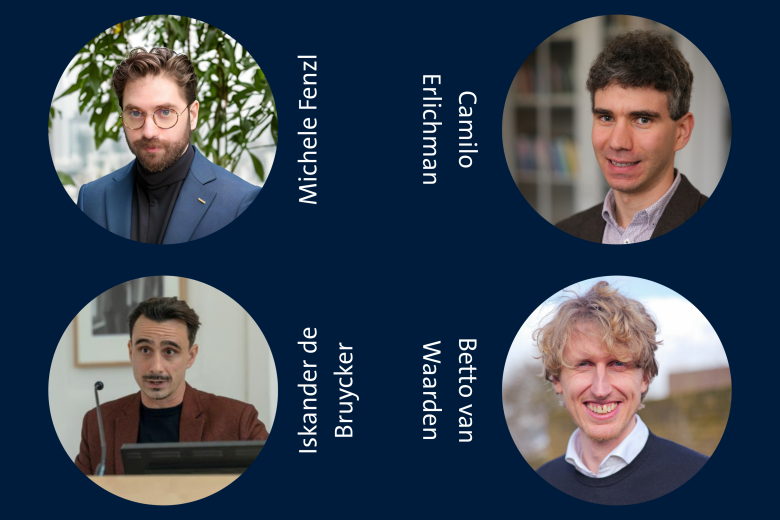
-
Reducing the Digital Divide: Empowering Students to Train, Evaluate, and Use AI Text Models
The Maastricht Law and Tech Lab, together with the Brightlands Institute for Smart Society (BISS), obtained a € 100.000 a Comenius Senior Teaching Fellow grant.
-
Green school playgrounds boost concentration and wellbeing
Children at schools with green playgrounds are better able to concentrate and display more social behaviour. This is the conclusion of a follow-up study within the long-running project The Healthy Primary School of the Future .
